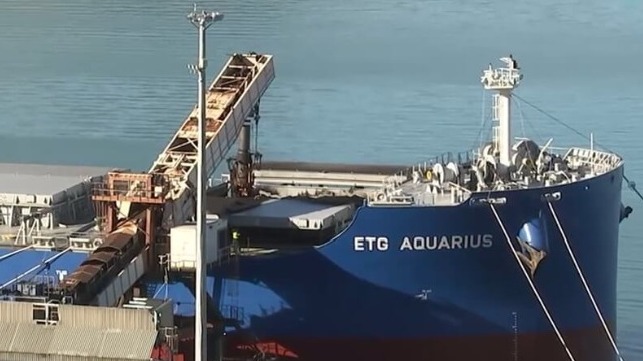After Two Deaths, NZ Investigators Take Stevedoring Firms to Task

New Zealand's Transport Accident Investigation Commission (TAIC) is pushing for tougher policing of the stevedoring industry after two deadly accidents last year exposed safety shortcomings at stevedoring companies.
After the deaths of two dock workers in one week in April last year, TAIC has issued a scathing review of stevedoring companies for allegedly failing to work proactively to improve the safety of workers employed to load and unload cargo.
On April 19, 2022, a stevedore working onboard the vessel Capitaine Tasman at Auckland was crushed to death by a falling 40-foot container. Six days later, another stevedore involved in loading coal at Lyttelton was discovered dead on the deck of the vessel, buried under a pile of the cargo.
The two stevedores were employed by Wallace Investments Limited (WIL) and Lyttelton Port Company Limited (LPC). The companies have already been charged for the two deaths under section 48 of the Health and Safety at Work Act 2015.
TAIC found that while both WIL and LPC were in the process of improving their respective safety systems, at the time of the accidents there were safety deficiencies, including failure to adequately understand how the day-to-day behavior of their employees might circumvent their control measures.
In the two incidents, investigators identified “common systemic safety issues” that bedevil the wider stevedoring industry, which has historically been accused of poor safety records. The industry is not regulated with the degree of rigor afforded to other high-risk industries, TAIC said. The commission contends that lack of cohesiveness within the stevedoring community means there is little ability to benchmark comprehensively with peers.
“We need to move on from stevedoring organizations deciding for themselves how they will meet safety requirements. They receive insufficient regulatory oversight, lack industry-wide safety standards and lack the formal safety management oversight and monitoring required of other industries. There is minimal proactive gathering and sharing of safety information, and too few appreciate the benefits of a good safety culture,” said Naveen Kozhuppakalam, TAIC Chief Investigator of Accidents.
He added that Maritime New Zealand should work with the stevedoring industry to develop and implement a risk management code of practice, minimum training standards and ongoing improvements such as sharing of safety information amongst industry players.
Maritime NZ said that it is already working on developing more consistent safety standards, with a draft approved code of practice for loading and discharging cargo currently under review. The regulator also has a plan to improve workforce training, capability and understanding of risks.

No comments:
Post a Comment